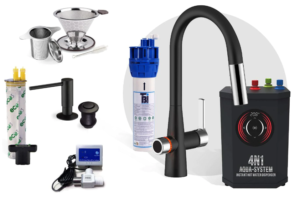
Effective Job Search Strategies for Experienced Job Seekers
Job searching can be daunting, especially for experienced professionals who may find the landscape drastically changed since their last job hunt. Whether you’re looking to switch industries, seek a higher position, or simply find a better fit, you must employ strategies tailored to your experience level. This detailed guide will explore effective job search strategies for experienced job seekers, providing tips and insights to help you successfully navigate the competitive job market.
1. Self-Assessment and Goal Setting
a. Evaluate Your Skills and Experience
Before starting the job search, assess your skills, experience, and career goals. Identify your strengths, accomplishments, and areas for improvement. Understanding your unique value proposition will help you target the right opportunities and present yourself effectively to potential employers.
b. Define Your Career Goals
Clearly define what you want to achieve in your next role. Consider factors such as the industry, company size, job responsibilities, work-life balance, and long-term career aspirations. Setting specific, measurable, achievable, relevant, and time-bound (SMART) goals will give you a clear direction and help you stay focused during your job search.
2. Craft a Compelling Resume and Cover Letter
a. Highlight Relevant Experience
Tailor your resume to highlight your most relevant experience, skills, and achievements. Use a chronological format that showcases your career progression and emphasizes your accomplishments. Be sure to include quantifiable results, such as increased sales, cost savings, or project successes, to demonstrate your impact in previous roles.
b. Use Keywords
Incorporate keywords from the job descriptions of the positions you’re applying for. Many companies use applicant tracking systems (ATS) to screen resumes, and using relevant keywords will increase the chances of your resume getting noticed. Focus on industry-specific terms and phrases that reflect your expertise.
c. Write a Tailored Cover Letter
A personalized cover letter can set you apart from other candidates. If possible, address the letter to the hiring manager and explain why you are a good fit for the role and the company. Highlight your most relevant experience and achievements, and express your enthusiasm for the position.
3. Leverage Your Network
a. Tap into Your Professional Network
Networking is one of the most effective job search strategies for experienced professionals. Reach out to former colleagues, mentors, industry contacts, and friends to let them know you’re looking for new opportunities. Attend industry events, conferences, and seminars to expand your network and stay updated on the latest trends.
b. Use LinkedIn Effectively
LinkedIn is a powerful tool for job seekers. Ensure your LinkedIn profile is complete, up-to-date, and professional. Use a professional photo, write a compelling headline, and summarize your experience and achievements in the summary section. Connect with industry professionals, join relevant groups, and engage with content to increase your visibility.
c. Seek Informational Interviews
Informational interviews can provide valuable insights and help you build relationships with professionals in your target industry or company. Contact individuals in your network or new contacts on LinkedIn and request a brief meeting to learn more about their role, company, or industry. Be respectful of their time and come prepared with thoughtful questions.
4. Research and Target Potential Employers
a. Identify Target Companies
List companies that align with your career goals, values, and interests. Research each company to understand its culture, mission, and recent developments. This information will help you tailor your applications and prepare for interviews.
b. Follow Companies and Key Players on Social Media
Follow your target companies and key players on LinkedIn, Twitter, and other social media platforms. Engage with their content by liking, sharing, and commenting on posts. This will help you stay informed about company news and demonstrate your interest and engagement.
c. Utilize Company Websites and Job Boards
Regularly visit the career pages of your target companies and set up job alerts to be notified of new openings. Use industry-specific job boards and professional associations to find relevant job postings.
5. Enhance Your Skills and Knowledge
a. Pursue Continuing Education
Stay competitive in the job market by continuously updating your skills and knowledge. Consider enrolling in online courses, workshops, or certification programs related to your field. This demonstrates your commitment to professional development and keeps your skills current.
b. Attend Industry Conferences and Seminars
Participate in industry conferences, seminars, and webinars to stay informed about your field’s latest trends and developments. These events also provide excellent networking opportunities and can help you connect with potential employers.
c. Read Industry Publications and Blogs
Stay updated on industry news and trends by reading relevant publications, blogs, and newsletters. This will help you stay informed about market developments and provide valuable insights that you can use during interviews and networking conversations.
6. Utilize Job Search Engines and Apps
a. Use Multiple Job Search Platforms
Maximize your job search by using a variety of job search engines and apps. Popular platforms like Indeed, Glassdoor, and LinkedIn offer extensive job listings and advanced search features. Set up job alerts to receive notifications about new postings that match your criteria.
b. Customize Your Search Criteria
Use filters to narrow your job search based on location, industry, salary range, and job type. Customizing your search criteria will help you find relevant opportunities more efficiently.
c. Track Your Applications
Keep track of the jobs you’ve applied for, including the company name, position, application date, and follow-up actions. This will help you stay organized and ensure you don’t miss any opportunities or deadlines.
7. Prepare for Interviews
a. Research the Company and Role
Before any interview, thoroughly research the company and the role you’re applying for. Understand the company’s mission, values, products, services, and recent news. Review the job description and identify how your skills and experience align with the requirements.
b. Practice Common Interview Questions
Prepare for common interview questions such as “Tell me about yourself,” “Why do you want to work here?” and “What are your strengths and weaknesses?” Practice your responses to ensure you can answer confidently and concisely. Use the STAR method (Situation, Task, Action, Result) to structure your answers and highlight your accomplishments.
c. Prepare Questions for the Interviewer
Prepare thoughtful questions to ask the interviewer. This demonstrates your interest in the role and helps you gather important information about the company and the position. Avoid asking questions that can be easily answered by researching the company website.
8. Follow Up and Stay Engaged
a. Send Thank-You Notes
After an interview, send each interviewer a personalized thank-you note or email within 24 hours. Express your appreciation for the opportunity, reiterate your interest in the role, and briefly highlight how your skills and experience align with the position.
b. Stay in Touch
If you don’t receive an immediate response after an interview, follow up with a polite email or phone call to inquire about the status of your application. Staying engaged shows your continued interest in the position.
c. Network with Your Interviewers
Even if you don’t get the job, maintain a positive relationship with your interviewers by connecting with them on LinkedIn. This can help you stay on their radar for future opportunities and expand your professional network.
9. Consider Temporary or Contract Work
a. Gain Valuable Experience
Temporary or contract work can provide valuable experience and help you stay active in your field while searching for a permanent position. It can also lead to full-time opportunities if you demonstrate your skills and work ethic.
b. Expand Your Network
Working in temporary or contract roles expands your professional network and builds relationships with potential employers. These connections can lead to new opportunities and referrals.
c. Keep Your Skills Sharp
Temporary or contract work helps you keep your skills sharp and stay updated on industry trends. It also demonstrates your flexibility and adaptability to potential employers.
10. Stay Positive and Persistent
a. Maintain a Positive Attitude
Job searching can be challenging and sometimes discouraging. Maintaining a positive attitude and staying motivated is essential for a successful job search. Celebrate small victories, such as landing an interview or receiving positive feedback, to keep your spirits high.
b. Set Realistic Goals
Set realistic and achievable goals for your job search, such as applying for a certain number of jobs each week or attending a specific number of networking events. This will help you stay focused and organized.
c. Take Care of Your Well-Being
Job searching can be stressful, so taking care of your physical and mental well-being is important. Take regular breaks, exercise, and engage in activities that you enjoy. Staying healthy and balanced will help you maintain the energy and motivation needed for a successful job search.
Conclusion
For experienced job seekers, navigating the job market requires strategic planning, networking, and persistence. You can increase your chances of finding the right opportunity by assessing your skills and goals, crafting a compelling resume and cover letter, leveraging your network, and staying updated on industry trends. Remember to stay positive, remain adaptable, and continue developing your skills to stay competitive in the ever-evolving job market. With these effective job search strategies, you can successfully transition to the next career phase and achieve your professional goals.
Are you looking for a temporary job in Singapore? Contact us or visit our website to learn more about admin part-time jobs in Singapore.


